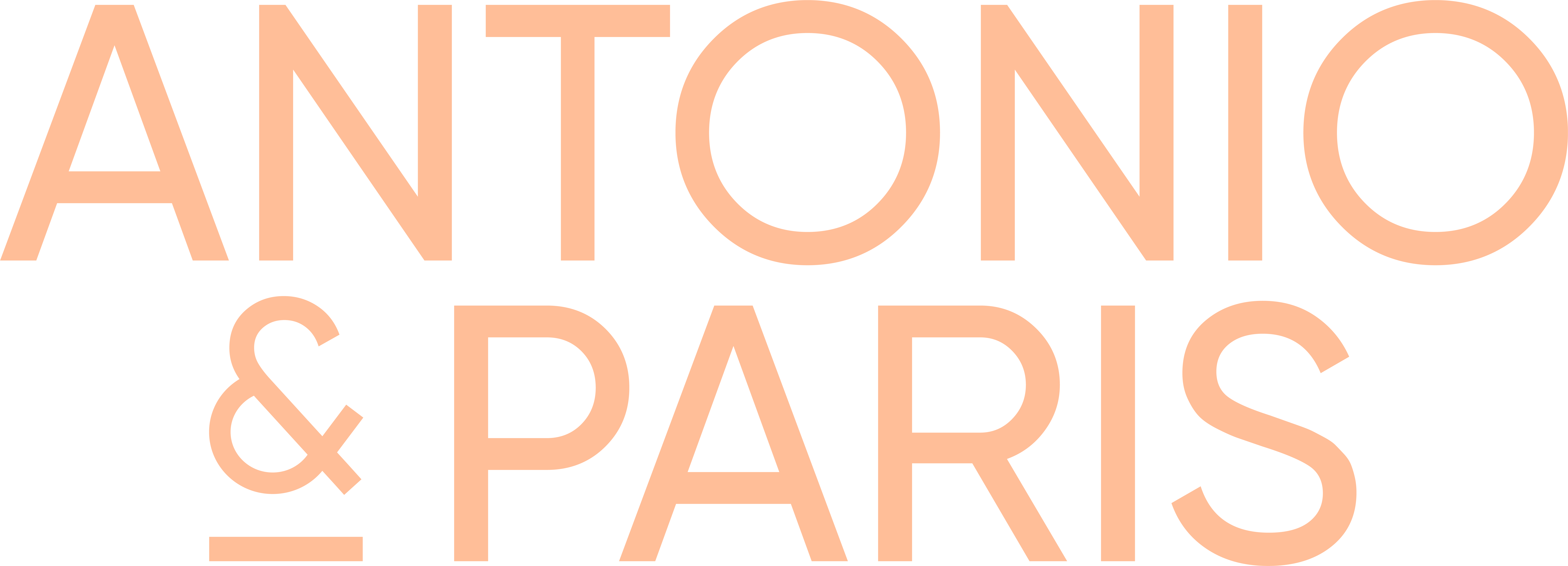The Two-Year Olympics: Marketing Across 2020/2021
BY: ZACK MISKEL | JULY 14, 2021 – 5 MIN READ

The Two-Year Olympics: Marketing Across 2020/2021
BY: ZACK MISKEL | JULY 14, 2021 – 5 MIN READ

Key Takeaways (5-minute read):
- This unique “two-year” Olympics offered an opportunity to innovate.
- Sponsors needed to protect ROI and keep the momentum going.
- Visa led the way with its digital marketing strategy and content creation.
Brands were given the ultimate challenge last spring when the Summer 2020 Olympics were postponed on just a few months’ notice: What do sponsors do with all the marketing campaigns and strategies they’ve been formulating for the past few years or longer? The COVID-19 pandemic forced brands worldwide to pivot harder than ever before, to innovate in order to survive, and to develop new brand strategies that could still propel them into the future without the expected push from an acclaimed international event.
In Visa’s case, forging onward with its plans into the Summer 2021 Olympics (still officially marketed as Tokyo 2020) meant salvaging what they could and finding new ways to implement its marketing strategies already in play. Its sponsorship—part of a deal lasting through 2032—wasn’t in jeopardy, but that didn’t mean its marketing team could rest on their laurels and just wait for a new year.
“A lot was planned, and a lot can be reapplied in some way, shape, or form,” said Visa’s former Chief Brand & Innovation Marketing Officer Chris Curtin on learning that the Tokyo Olympic Games would be pushed to 2021. “At the end of the day, it’s the same city, and much of what was going to be part of the mix, part of the go-to-market plan for Visa, we hope to be maintained and preserved. That’s part of the reason we felt postponement—not by weeks, not by months, but by a year—made sense, at least from our perspective.
This short interview with Megan Rapinoe, part of Visa’s pre-COVID #TeamVisa series, is a good example of the type of athlete-related content the company created before the pandemic shutdown.
One player’s story can change the game. Thanks to @Visa for helping me tell my story. I hope that it can help inspire the next generation to #dreambig and #betrue. #VisaAmbassador #TeamVisa pic.twitter.com/E6wWqyrWsz
— Megan Rapinoe (@mPinoe) June 21, 2019
When COVID stopped the world, content creation took a turn, with innovative marketing strategies leaning heavily on celebrities’ at-home endorsements and interviews; Visa’s Olympics marketing was no exception. Its #TeamVisa athletes shared their tips and advice for staying home and staying safe during COVID with its “Isolate like an Olympian” campaign. The short commercials featured Olympic athletes practicing their sports at home during quarantine, including swimmer Katie Ledecky and badminton player PV Sindhu.
Aquatic burpees aren’t easy😅
…but staying home is. Isolate like an Olympian and do your part to help keep others safe. #VisaAmbassador Proud to be on #teamvisa @visa_us #stayhome pic.twitter.com/CMMdHuUmcn— Katie Ledecky (@katieledecky) April 2, 2020
Wash your hands for 20 seconds like an Olympian. Do your part to keep others safe and stay home! We will beat this together. #VisaAmbassador Proud to be on #teamvisa @Visa_IND #stayhome #stayhealthy@trramach @Sujathatweets pic.twitter.com/49vB3Yy0oR
— Pvsindhu (@Pvsindhu1) April 18, 2020
The nostalgic “home movie” feel and intimate nature of the athletes speaking to the audience from their houses add authenticity to these short campaigns. It gives even a global conglomerate like Visa the ability to produce a more real and direct channel for communicating with their customers. In a time when people needed connection more than ever, this was crucial. The quick turnaround time and low cost for creation also make the campaign innovative—a PSA rather than the typical celebrity endorsement. In the following months, Visa also released a series of animated commercials such as the one below, focusing on the future of touchless payment technology.
View this post on Instagram
This technology is still vital to Visa’s Tokyo 2020 marketing strategy, as the city has long been a mecca for tech. Creating a cashless, touchless economy is high on the agenda for both Japan and Visa. “Contactless payments have taken on a new meaning,” said Visa’s Chief Marketing And Communications Officer, Lynne Biggar. “In many markets, though, contactless payments were the norm, not the exception. In the US, the evolution is still happening and will certainly speed up.”
Earlier this summer, the company released its full Team Visa lineup for Tokyo 2020 along with the message of hope for the future. “The resilience and unbreakable spirit of Olympic and Paralympic athletes can be seen in experiences of veterans and newcomers alike over the past year, spreading messages of optimism and positivity while staying dedicated to their training to compete on the world stage in Tokyo.”
These messages and the content used to spread them will keep global brands like Visa relevant, growing, and constantly evolving with the times. Like the world’s top athletes, brands who want to grow through the aftermath of the pandemic must be survivors who never stop creating, innovating, and striving to make the world a better place.
About A&P
A&P, a brand agency, excels in finding innovative ways for clients to provide exceptional experiences to their customers. Their work includes consumer insight, brand innovation, creative development, mobile and technology solutions for global brands such as AT&T, Mini USA, DIRECTV, Newell Rubbermaid, Tenet Healthcare, and Barco Escape. For more information about A&P, visit them on Facebook, Twitter or antonioandparis.com.
Key Takeaways (5-minute read):
- This unique “two-year” Olympics offered an opportunity to innovate.
- Sponsors needed to protect ROI and keep the momentum going.
- Visa led the way with its digital marketing strategy and content creation.
Brands were given the ultimate challenge last spring when the Summer 2020 Olympics were postponed on just a few months’ notice: What do sponsors do with all the marketing campaigns and strategies they’ve been formulating for the past few years or longer? The COVID-19 pandemic forced brands worldwide to pivot harder than ever before, to innovate in order to survive, and to develop new brand strategies that could still propel them into the future without the expected push from an acclaimed international event.
In Visa’s case, forging onward with its plans into the Summer 2021 Olympics (still officially marketed as Tokyo 2020) meant salvaging what they could and finding new ways to implement its marketing strategies already in play. Its sponsorship—part of a deal lasting through 2032—wasn’t in jeopardy, but that didn’t mean its marketing team could rest on their laurels and just wait for a new year.
“A lot was planned, and a lot can be reapplied in some way, shape, or form,” said Visa’s former Chief Brand & Innovation Marketing Officer Chris Curtin on learning that the Tokyo Olympic Games would be pushed to 2021. “At the end of the day, it’s the same city, and much of what was going to be part of the mix, part of the go-to-market plan for Visa, we hope to be maintained and preserved. That’s part of the reason we felt postponement—not by weeks, not by months, but by a year—made sense, at least from our perspective.
This short interview with Megan Rapinoe, part of Visa’s pre-COVID #TeamVisa series, is a good example of the type of athlete-related content the company created before the pandemic shutdown.
One player’s story can change the game. Thanks to @Visa for helping me tell my story. I hope that it can help inspire the next generation to #dreambig and #betrue. #VisaAmbassador #TeamVisa pic.twitter.com/E6wWqyrWsz
— Megan Rapinoe (@mPinoe) June 21, 2019
When COVID stopped the world, content creation took a turn, with innovative marketing strategies leaning heavily on celebrities’ at-home endorsements and interviews; Visa’s Olympics marketing was no exception. Its #TeamVisa athletes shared their tips and advice for staying home and staying safe during COVID with its “Isolate like an Olympian” campaign. The short commercials featured Olympic athletes practicing their sports at home during quarantine, including swimmer Katie Ledecky and badminton player PV Sindhu.
Aquatic burpees aren’t easy😅
…but staying home is. Isolate like an Olympian and do your part to help keep others safe. #VisaAmbassador Proud to be on #teamvisa @visa_us #stayhome pic.twitter.com/CMMdHuUmcn— Katie Ledecky (@katieledecky) April 2, 2020
Wash your hands for 20 seconds like an Olympian. Do your part to keep others safe and stay home! We will beat this together. #VisaAmbassador Proud to be on #teamvisa @Visa_IND #stayhome #stayhealthy@trramach @Sujathatweets pic.twitter.com/49vB3Yy0oR
— Pvsindhu (@Pvsindhu1) April 18, 2020
The nostalgic “home movie” feel and intimate nature of the athletes speaking to the audience from their houses add authenticity to these short campaigns. It gives even a global conglomerate like Visa the ability to produce a more real and direct channel for communicating with their customers. In a time when people needed connection more than ever, this was crucial. The quick turnaround time and low cost for creation also make the campaign innovative—a PSA rather than the typical celebrity endorsement. In the following months, Visa also released a series of animated commercials such as the one below, focusing on the future of touchless payment technology.
View this post on Instagram
This technology is still vital to Visa’s Tokyo 2020 marketing strategy, as the city has long been a mecca for tech. Creating a cashless, touchless economy is high on the agenda for both Japan and Visa. “Contactless payments have taken on a new meaning,” said Visa’s Chief Marketing And Communications Officer, Lynne Biggar. “In many markets, though, contactless payments were the norm, not the exception. In the US, the evolution is still happening and will certainly speed up.”
Earlier this summer, the company released its full Team Visa lineup for Tokyo 2020 along with the message of hope for the future. “The resilience and unbreakable spirit of Olympic and Paralympic athletes can be seen in experiences of veterans and newcomers alike over the past year, spreading messages of optimism and positivity while staying dedicated to their training to compete on the world stage in Tokyo.”
These messages and the content used to spread them will keep global brands like Visa relevant, growing, and constantly evolving with the times. Like the world’s top athletes, brands who want to grow through the aftermath of the pandemic must be survivors who never stop creating, innovating, and striving to make the world a better place.
About A&P
A&P, a brand agency, excels in finding innovative ways for clients to provide exceptional experiences to their customers. Their work includes consumer insight, brand innovation, creative development, mobile and technology solutions for global brands such as AT&T, Mini USA, DIRECTV, Newell Rubbermaid, Tenet Healthcare, and Barco Escape. For more information about A&P, visit them on Facebook, Twitter or antonioandparis.com.

WRITTEN BY
Zack Miskel
Short Bio — Zack joined the Antonio & Paris team at the beginning of 2019 after spending the previous five years running two start-up companies in the Bay Area Now a strategist, Zack works alongside the strategic planning team at Antonio & Paris to deliver a big-picture perspective for clients such as MINI USA, Barco (Belgium), and Brookdale Senior Living, to name a few.

WRITTEN BY
Zack Miskel
Short Bio — Zack joined the Antonio & Paris team at the beginning of 2019 after spending the previous five years running two start-up companies in the Bay Area Now a strategist, Zack works alongside the strategic planning team at Antonio & Paris to deliver a big-picture perspective for clients such as MINI USA, Barco (Belgium), and Brookdale Senior Living, to name a few.

